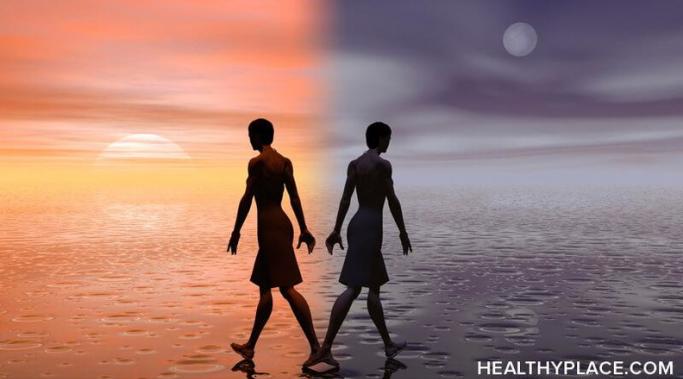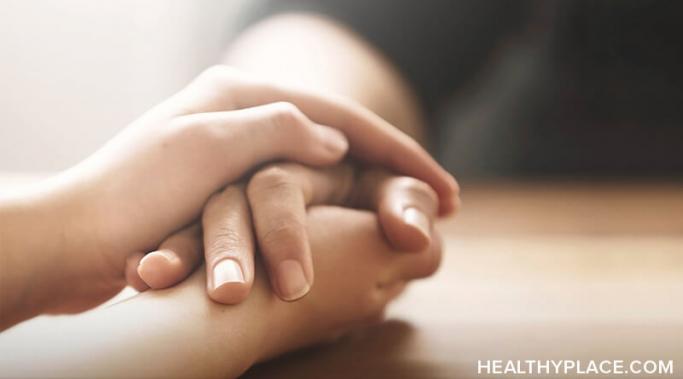Blogs
I was diagnosed with anorexia nervosa when I was forty-two, although I've wondered if I didn't have at least vestiges of the disorder when I was a young adult. For a long time, I tried hard to hide my condition or at least deflect concern about me onto others . . . anyone, as long as people didn't guess my secret: that I was anorexic.
I should have saved myself the trouble, because the majority people I knew figured out what was wrong with me long before I would even admit it.
I often wondered what would have happened if either:
a. I had talked to someone when I first began restricting at the age of eighteen, or
b. If I had chose to keep silent about my eating disorder.
I know — two different scenarios.
After leaving your abusive relationship, no one can predict your emotions exactly. But after some time of mentoring survivors, I've found many similarities between other survivors' emotional experiences and my own. Fear of the unknown is a factor in whether or not someone leaves their abuser. So I hope this post gives you a heads up about the emotions you might experience after leaving your abusive relationship.
Nine years ago, I was appointed conservator of estate and person for my son Ben. I remember the court hearing well. Ben was in the middle of his first hospitalization for schizophrenia, refusing medication, and wanted to be released. The only way to keep him in the hospital, if he did not agree to stay voluntarily (and that certainly wasn't happening), was to apply for conservatorship. The hospital would then be legally required to keep Ben there - at least until the court date.
The story I want to tell you today happened between my ex and me over two years ago when we were still together. At the time, I knew he was abusing me. I realized that there was little hope that he would change. I didn't want to leave my marriage, but I was beginning to think there was no real marriage to leave anyway.
Looking back, I remember my internal struggle to find an elusive peace. I longed for a partner who loved me and would work with me through life's trials and celebrate its joys. I so wanted a normal conversation, a nice conversation without the abusive junk lurking underneath the surface. I was hoping my life away.
If you see yourself in the following story, please think long and hard about whether you want to wait it out to see if your partner decides to change. Remember that the abuser finds great benefit in abusing, otherwise s/he would have changed long ago.
Assisted outpatient treatment (AOT), also known as outpatient commitment (OPC), is a controversial program that you may know by the name “Laura’s Law” in California or “Kendra’s Law” in New York. These programs are designed to facilitate court-ordered outpatient treatment in a very small segment of the mentally ill population.
In other words, they force mental health treatment onto certain people.
But does forcing people into mental illness treatment actually help anyone? According to the Office of Justice Programs, yes, it does.
So, what is a case study? Let's refer to Wikipedia--Wikipedia knows everything, right? It can even define feelings!
For people with ADHD, a familiar strategy to get things done is to be very clear about their goals, break them down into smaller pieces, and complete those smaller pieces in order to carry out the goal. Weekly we plan for what needs to be accomplished. Daily we check and check off our to do lists for what we accomplish and breathe a sigh of relief when we can look back and see that indeed we have moved forward and made progress. Completing these steps helps create the structure and organization that minimizes the common challenges of disorganization, distraction, procrastination, etc.
This path of a goal, whether it’s a goal set for your personal, professional or academic life, is generally seen as having four steps: 1) assess the situation, 2) set goals for how you want it to be, 3) take steps to achieve the goals, and 4) achieve the goals (completion).
After Step 4, most people return to Step 1 armed with the question: “OK, what’s next?”
I don't know about your neck of the woods, but mine is literally blossoming with signs of Spring. Trees are budding, flowers are blooming--we even dug the lawn mower out of hiding yesterday.
With the return of Daylight Savings Time and April 1 less than a week away, I'm holding my breath and crossing my fingers, wondering--Will Bob's psychiatric symptoms get worse in the next few months, or do we have them well enough under control?
Addiction is a common symptom of borderline personality disorder (BPD). However, many myths about addiction treatment keep people with BPD from seeking help. More Than Borderline's, Becky Oberg, explores these myths and the realities of addiction treatment. Watch.
Younger readers may be astounded to learn that physical fitness was not always admired in America, universally acknowledged as the planet’s fattest nation. Oh no! Not so long ago, smoking cigarettes was the very height of chic, pizza was considered a health food, and the ability to drink into oblivion was widely viewed as proof of character. (Extra points were awarded if you woke up in a Tijuana brothel sporting an armadillo tattoo.)
Back then, there were two places where you could find exercise equipment, the YMCA and the weight rooms of prosperous academic institutions. Men who paid attention to their physiques were thought to be fabulously unintelligent, gender-ambivalent, or professional wrestlers; or all three. Women did not engage in any exercise at all other than pushing vacuum cleaners and lifting chubby infants.








